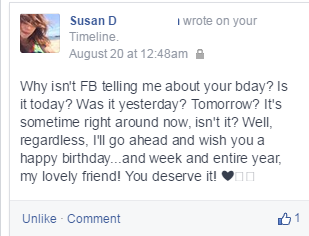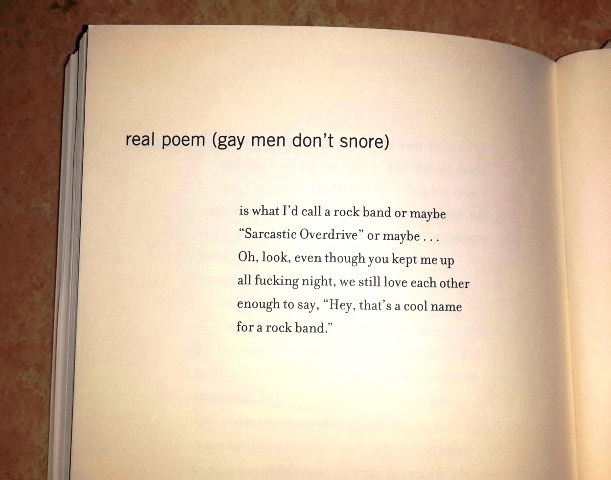Short Fiction
When I imagine the end of the world, I am alone at the edge of a cliff. It’s evening and God Only Knows by the Beach Boys is playing on a box radio I looted from my neighbor’s basement.
If it were a movie, I’d be gazing out over the city lights of Los Angeles just as the electricity went out, as one by one the skyscrapers lost power, and the city fell dark.
A blazing comet approaches.
Or a neon green burst of light from beyond the reaches of time.
Or a giant tidal wave shimmies up the coast.
If it were a movie, my heart would swell as I accepted my fate. I would open my arms and embrace humanity’s extinction for I knew I had lived life to its fullest.
But it’s not a movie.
It’s my real life.
In which almost every day is the end of the world.
* * *
I have a disease without a name.
If it had a name, it would be called something like redemptionitis or zombisteria or hypotrychtapocalypse.
The closest anyone has ever come to labelling my disease was in the years leading up to the much-publicized end of the Mayan Calendar in December 2012.
Doomsday Phobia, they called it.
Anyone who stocked their basements with toilet paper and canned sardines in preparation for Armageddon; anyone who hoarded books of medicinal herbs or learned how to forage for mushrooms in a weekend workshop held in the back woods of Westchester County, NY; anyone who stocked in the back of the medicine cabinet antibiotics from their child’s most recent prescription for strep throat: We were all quietly laughed at and labeled “preppers.”
Back when it was cute, the way a touch of crazy is cute, as long as it doesn’t lead to a shootout in a movie theater.
Back then, I wondered to myself if I was on a CIA watch list. Did they suspect me? A suburban New Jersey mom of two? A college educated professional with a real job and a real paycheck?
I certainly didn’t fit the profile.
I wore Ann Taylor suits and took the NJ Transit train every day from the suburbs into the city where I walked six blocks to my midtown workplace. In our open floor plan, I had the closest thing to an office – a transparent cube looking out over the East River, made from glass walls so others could look in. It was called the Rainbow Fish Bowl because of the stickers my daughter once placed on the sliding glass door. Every other Friday, I got a pedicure at Trudy’s Green Nails on Lexington Avenue. I was in a book club. I volunteered at the preschool. People liked me.
Each day, I put effort into smiling at my coworkers as if life wasn’t about to abruptly end by Avian Bird Flu. I’d make jokes over the phone with the sales consultants who’d ask me if I thought wheatgrass was gluten free. I played along. Drank Nespresso in the coffee room with the writers; made snide remarks with the editors about our wacky advertisers; especially the ones who placed ads offering organic MREs (meals-ready-to-eat) purported to last 15 years. Secretly, I wondered if it made sense to pay for organic canned food when the cans were probably lined with BPA.
Could my coworkers view my computer monitor, however, they would have noticed I spent half the day reading headlines on alternative news web sites, corresponding in code with people named “Zen Grower” about the latest UFO sighting over New Mexico or the best price on bulk dehydrated food. I read blogs from people living in half-completed bunkers in the mountains of West Virginia; with strangers supposedly privy to knowledge that was never reported on CNN. “The ‘Illuminati’ kills scientists, you know,” wrote Jade, my telepathic friend. She communicates with an alien race who is trying to save us from another alien race who’s been trying to destroy us since the Revolutionary War. “All war,” says Jade, “is the fault of the Reptilians.”
I would search “new world order Russian scientists reveal underwater pyramid” and “fourth dimensional beings plot to reprogram our brains” because I knew the search results would give me the intel I required to plan. And I planned. I had one to-do list that included vaccinations, playdates, and dentist appointments. Another to-do list for the end of the world.
My day job, I guess, was a ruse.
It was a way to satisfy my compulsion and still remain a member of society. Or so says Dr. Solomon. I saw it as a healthy way to educate myself on tactics I would surely need for the post-apocalyptic world I was certain was looming. Easily-learned skills like:
- Reiki for when we no longer had the option to see surgeons for bone breaks or muscle sprains;
- Acupressure, which I would use in the place of the anti-inflammatories we so depended on in the Before Times for headaches and menstrual cramps;
- Nutritional supplements and herbal teas — like Chia and Flax seeds; dandelion and feverfew — I’d grow in a rooftop urban garden, where I’d herd my children before the Flood.
Back then, I was Advertising Director of a major national healthy living magazine. I courted and secured advertisers from multiple sectors: home and garden, health and wellness, exercise and fitness, diet and nutrition. And, of course, our bestsellers: classifieds from personal vegan chefs, Hindu tantric sex practitioners and Henna artists.
I was really good at my job. I was good at selling ads because I really believed all of the service providers and multi-level marketing professionals. When they heard acknowledgment and acceptance in my voice over the phone, they eagerly placed half or more of their advertising budget in my hands.
I understood them, after all. Their fears. Their hopes. I knew intimately what it felt like to want to survive, but more so to want to be listened to and believed.
In my own experience, though, there were therapies and products that worked, and those that didn’t. Quackery, some might say. Except in my business, we never use the word quackery. This would alienate the chiropractors and homeopaths who placed half-page color ads for their self-published e-books.
Reiki, for instance, didn’t cure me of recurring yeast infections, as promised. But my Thursday afternoon sessions with Liane, the psychic massage therapist did help identify a sugar addiction. She also told me I had powers like hers; that I could, if I wanted to, study to be a healer.
She was right. I am a sugar addict. But she was also wrong. I can’t seem to heal anyone.
I kept seeing Liane on a regular basis and even believed most of the stories she would tell me: How her client was miraculously cured from testicular cancer by shiatsu and a six-week juice fast. How her deep tissue hot stone massage helped a couple overcome infertility. How the couple now had triplets – all girls.
I believed Liane. Except for that one time she told me that my migraines were the key to time travel, and that I should stop taking the Relert when the auras came on. I also believed the magazine readers who emailed testimony after testimony to our editorial staff profusely thanking us for publishing stories that changed their lives. I believed the clippable lists we elegantly designed for ease-of-use, like “Pema Chodron’s Top 5 Mantras for Mindful Sex.”
I believed we were helping people.
I believed the jacket copy on the bestseller of contributing editor, celebrity physician Dr. Joel Willey– a book I personally reviewed for the magazine last December — promising increased sexual desire and stamina for peri-menopausal women by switching to a vegan, carbohydrate-free, anti-inflammatory diet.
I believed it all.
Which, apparently, is a symptom of my disease.
I have a disease without a name; without a designation, but with a host of exhibiting symptoms that collectively, for the past fifteen years, I called “conscious living,” but collectively make up a manilla folder of evidence against me, sitting on an antique desk in Dr. Solomon’s office.
All these “symptoms,” which were formerly advantageous qualities on a resume when applying for a job at a natural healthy living magazine, are now being offered up as evidence of my insanity. My inability to continue as a functioning member of society.
My disease is without a name. It’s as lonely as a woman standing on the edge of a cliff waiting for the world to end.
But, as it turns out, no name is necessary.
* * *
This work of fiction is an excerpt from an original short story by Jen Maidenberg, “What I imagine when I imagine the end of the world.”



